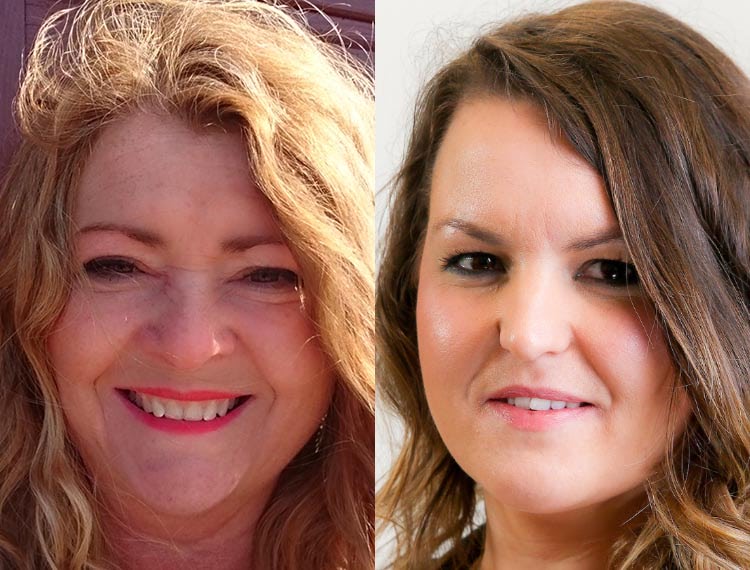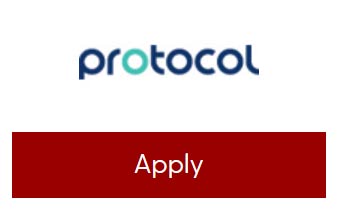Understanding the differences between an Assessor and an End Point Assessor

As the Government moves from Apprenticeship Frameworks to Apprenticeship Standards by 2020, Joanna Jagiello, Head of Marketing & Engagement at Protocol and Sam Taylor, Head of The Assessors Guild give some useful advice about how to prepare for these changes:
1. How do I become an End Point Assessor?
 While the criteria for End-point Assessors is different across every Standard, there are two vital things that every End-point Assessor needs:
While the criteria for End-point Assessors is different across every Standard, there are two vital things that every End-point Assessor needs:
- An assessing qualification
- Recent occupational experience in the role you will be assessing
For some Standards experience will mean being actively employed in the sector.
However, some will just require a certain amount of CPD (continued professional development) being completed across a recent timeframe.
 |
 |
At Protocol, we typically recommend aiming for 30 hours over the course of a year, but you should always refer to the assessment plan of the Standard you want to assess, for specific requirements.
When looking for a role as an End-point Assessor, your first port of call should be Protocol of course!
We recruit for EPAOs across a number of Standards and can add you to our database of candidates who are looking for EPA work, or offer advice on steps to take.

As Protocol have advised, the criteria to End-point Assess on standards varies. This depends on the occupational sector, what is in the assessment plan itself and also the expectations of the End-point Assessment Organisation (EPAO).
As the main requirements are an assessing qualification plus current occupational experience, this has raised some difficulties because many assessors are highly experienced but have not been in industry for some time, on the flip side many occupational specialists with years of experience don’t hold a formal assessor qualification.
The Assessors Guild are committed to closing this gap as our members are expected to demonstrate Continuing Professional Development (CPD) annually by uploading progress and evidence to their member portal. Their CPD activity needs to map to one or more of our Professional Standards to ensure the activities are valid in terms of the sector.
2. I am a qualified Assessor, can I become an End-point Assessor?
 As mentioned, keeping up your occupational competence is one of the most important factors to becoming an EPA.
As mentioned, keeping up your occupational competence is one of the most important factors to becoming an EPA.
Spending time in the field visiting your learners as an assessor is not enough – you must have had hands-on experience doing the job yourself.
As well as this, it’s important to understand the differences between being an Assessor and an End-point Assessor.
As an EPA you will be visiting learners once only rather than regularly, so you can expect to cover a wider area and travel a bit more.
You will probably be with each apprentice for a half or full day, though some Standards can be assessed remotely, and paid per day or per portfolio.
Tasks can involve marking tests, reviewing portfolios and projects, observations, professional discussions etc. As always, we’d advise checking each Standard’s assessment plan to see exactly what it is you’ll be doing.
 Absolutely yes! Your skills in assessment are transferable and valid. As mentioned, you will just need to concentrate on some CPD to address any gaps in your skills, experience and occupational competency, which is good practice anyway.
Absolutely yes! Your skills in assessment are transferable and valid. As mentioned, you will just need to concentrate on some CPD to address any gaps in your skills, experience and occupational competency, which is good practice anyway.
CPD is crucial to your ongoing development and improvement as an assessor.
However there seems to be a little confusion around exactly what is an End-point Assessor.
An End-point Assessor is not a completely new role but an extension of existing assessment methodology.
It is just another form of summative assessment, albeit independent and with no prior relationship with learners and apprentices.
So, anyone with a current assessor or teaching qualification can End-point assess with some additional professional development so that they understand the different modes and delivery of End-point assessment.
3. What CPD do I need to be thinking about for End-point Assessment?
 There are a number of things you could do to top up your CPD.
There are a number of things you could do to top up your CPD.
Here’s a few examples from various candidates we’ve spoken to over the last few months:
- Warehousing – Spent a week job-shadowing a warehouse manager who was one of their learners’ employers
- Nursing – Undertook nursing shifts around once a month
- Adult social care – covered shifts as a care home manager
- Finance – Self-employed mortgage advisor, financial consultant
- Retail – Volunteered in a charity shop weekly
You will also have to ensure that you keep up your assessing best practice. CPD activities for this can include working towards an IQA or EPA qualification, attending conferences and apprenticeship events, or online activities such as the webinars offered by SDN/Protocol.

We work with strategic partners to deliver and certificate CPD activities that align with our Professional Standards.
The standards have been developed to map to existing and legacy assessor and Internal Quality Assurance Awards (IQA).
The standards span:
- Professional Knowledge (PK)
- Professional Practice (PP)
- Professional Conduct (PC)
- Professional Leadership (PL)
For example, recently we have awarded Assured CPD status to a couple of providers that offer End-point Assessor qualifications that pick-up standards across PK and PP.
We have also awarded certificates to delegates that attended a conference, a webinar and also a workshop on assessment. As long as the activities are within the context of one or more of our professional standards and the course is approved by us, we will certificate.
4. I’m an Assessor, I’m no longer industry competent as I have been working in FE for many years, what job or training can I do next?
 If you no longer have the industry competence to be an EPA, you can always continue assessing. However, assessing roles working with Standards are now more often referred to as Skills Coach or Trainer.
If you no longer have the industry competence to be an EPA, you can always continue assessing. However, assessing roles working with Standards are now more often referred to as Skills Coach or Trainer.
Alternatively, you could also consider moving into a more administrative role such as apprenticeship coordinator or EPA officer within a training provider. Training providers will look for candidates who understand assessments needs and who possess strong management and administration skills to ensure all aspects of the apprenticeship programme run smoothly.
Regardless of what you intend to pursue, we would always advise updating your knowledge of your industry sector even if you’re not working in it. Technology evolves all the time and jobs change, so keep learning!
 Your competence to assess on-programme whether as a formative assessor, skills coach, trainer or at End-point, is entirely reliant on your continued professional development, whether through further training and development or via a period of returning to industry.
Your competence to assess on-programme whether as a formative assessor, skills coach, trainer or at End-point, is entirely reliant on your continued professional development, whether through further training and development or via a period of returning to industry.
There is no set guidance on the time you need to spend in industry as each sector is different so find out how you can fulfil the requirements of your occupational sector; sector employers may be able to help you via job shadowing or secondment so conduct some investigation into this.
There is always a wealth of roles, you just need to be able to look in the right place and Protocol and The Assessors Guild showcase many roles. Also consider going on to the Guild Register of Assessors (RoA) so that you are available to organisations to contact and contract you for work.
5. What qualifications do I need to be able to Train or Assess in Apprenticeships?
To work as a trainer/assessor/skills coach you will need to have industry experience in the sector you will be assessing along with an assessing qualification.
 Your industry experience doesn’t necessarily need to be up to date, but you may have to update your knowledge to fit in with the requirements of the Standard.
Your industry experience doesn’t necessarily need to be up to date, but you may have to update your knowledge to fit in with the requirements of the Standard.
Some training providers are more than happy to take on assessors still working towards their TAQA/CAVA qualification, and some may even be willing to provide the qualification themselves!
 There are a range of assessor qualifications such as TAQA/CAVA but there are also ones focused on just End-point Assessment. However, there are other qualifications such as teaching and lecturing ones that will have covered modes of assessment as part of their modules.
There are a range of assessor qualifications such as TAQA/CAVA but there are also ones focused on just End-point Assessment. However, there are other qualifications such as teaching and lecturing ones that will have covered modes of assessment as part of their modules.
If you don’t hold any teaching or assessing qualifications it is the expectation that you aim to complete one as it will develop your professional knowledge and practice. If you want further targeted advice, please email The Assessors Guild and we will be happy to advise.
6. What is the difference between being an Assessor / Trainer / Assessor and an End-point Assessor?
 A Standard assessor/trainer would visit their learners over a 12-48-month period (or more in some cases!) dependent on the Standard, building rapport and acting as a mentor for the Apprentice.
A Standard assessor/trainer would visit their learners over a 12-48-month period (or more in some cases!) dependent on the Standard, building rapport and acting as a mentor for the Apprentice.
An EPA undertakes the final assessment of an apprentice’s skills, knowledge and behaviours and gives them the final grade of fail, pass, merit (or distinction for some Standards).
EPAs must be independent from the training provider and the learner and must ensure impartial and consistent judgements from an industry perspective.
 The difference is mainly the impartiality and independence of end-point assessment. As a trainer or assessor, you build a relationship with your learners and get to know their level of skills, knowledge and behaviours on a continual basis before you start to assess them.
The difference is mainly the impartiality and independence of end-point assessment. As a trainer or assessor, you build a relationship with your learners and get to know their level of skills, knowledge and behaviours on a continual basis before you start to assess them.
An End-point Assessor will not have had any prior relationship with the learner/apprentice being assessed as they must be independent from the training provider so will have no prior knowledge of the learners.
What training and qualifications do you need to prepare for delivering Apprenticeship Standards, as the Government moves from Apprenticeship Frameworks to Apprenticeship Standards by 2020?
The old Frameworks were a lot more generalised compared to the new Standards. For example, Health and Social Care now offers 10 Standards across the Care route and a few more on the Health and Science route.
 A good way to prepare would be to familiarise with all the Standards you think you might be able to assess and ensure that you have the industry experience required. If not, that would be a good direction to take your CPD.
A good way to prepare would be to familiarise with all the Standards you think you might be able to assess and ensure that you have the industry experience required. If not, that would be a good direction to take your CPD.
If you’ve not been working in the industry there will be online CPD courses that you can take to get you up to speed with any changes since you left. If you have not been assessing for a while and have an older qualification you could considered doing the TAQA/CAVA update for your old D32/33 or A1 qualification.
 Keep your CPD up to date, join The Assessors Guild so that you have a set of Professional Standards to plan and shape your training and activities, and to also evidence your learning via our member portal.
Keep your CPD up to date, join The Assessors Guild so that you have a set of Professional Standards to plan and shape your training and activities, and to also evidence your learning via our member portal.
Everyone involved in assessment should be undertaking professional development as good practice; lifelong learning is essential to remain up to date with industry changes and emerging trends in educational assessment.
Our members are recognised in industry as committed to continuous learning, quality and consistency.
Sam Taylor, Head of The Assessors Guild and Joanna Jagiello, Head of Marketing & Engagement, Protocol












Responses